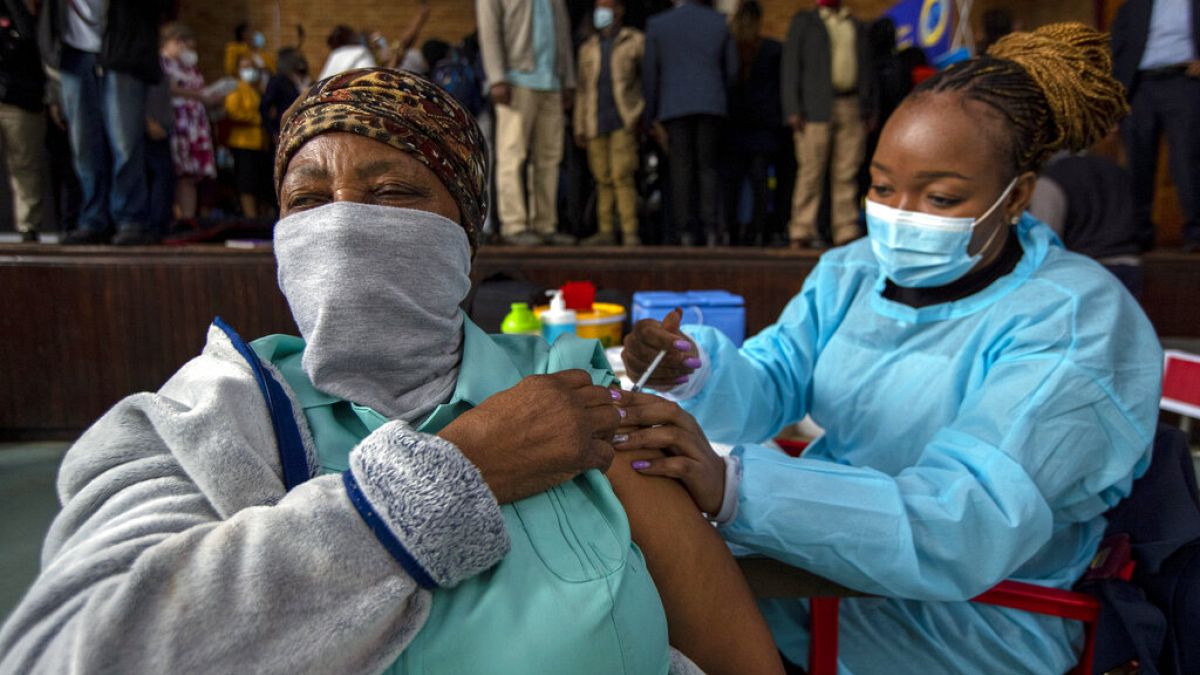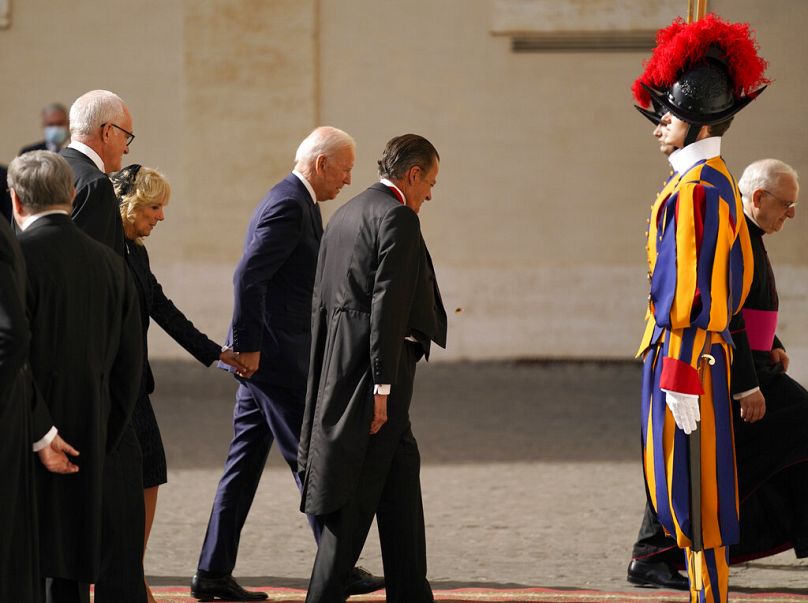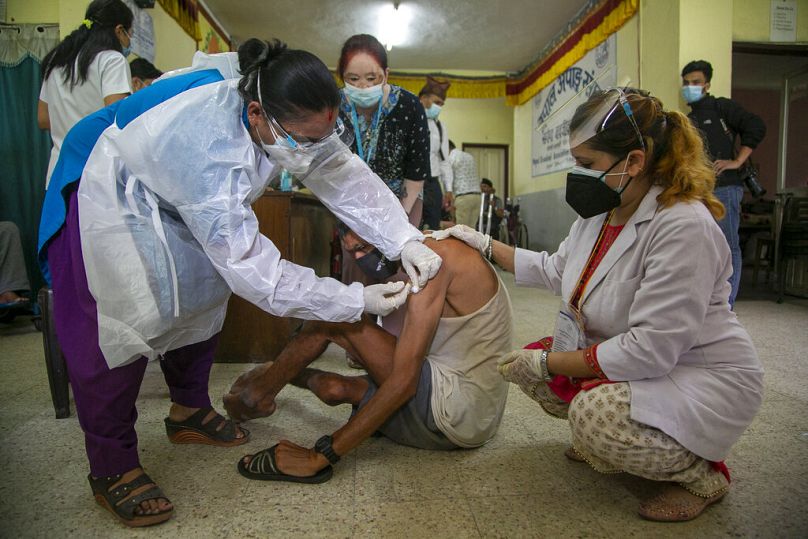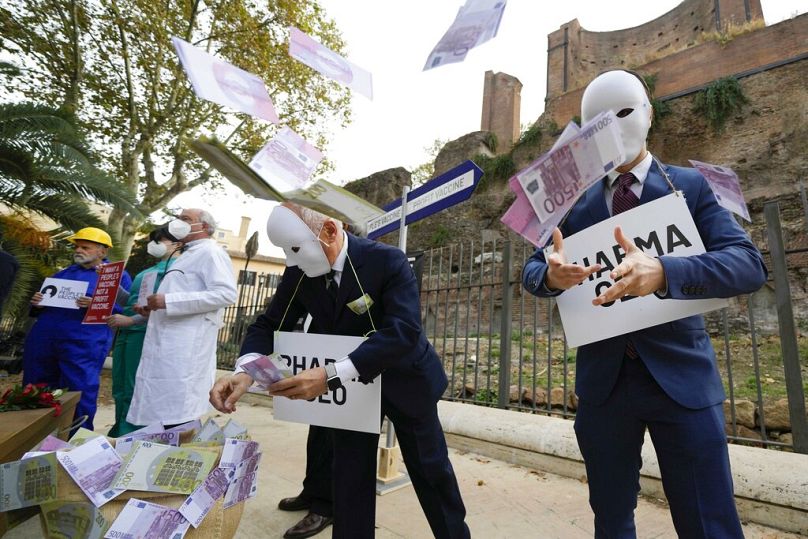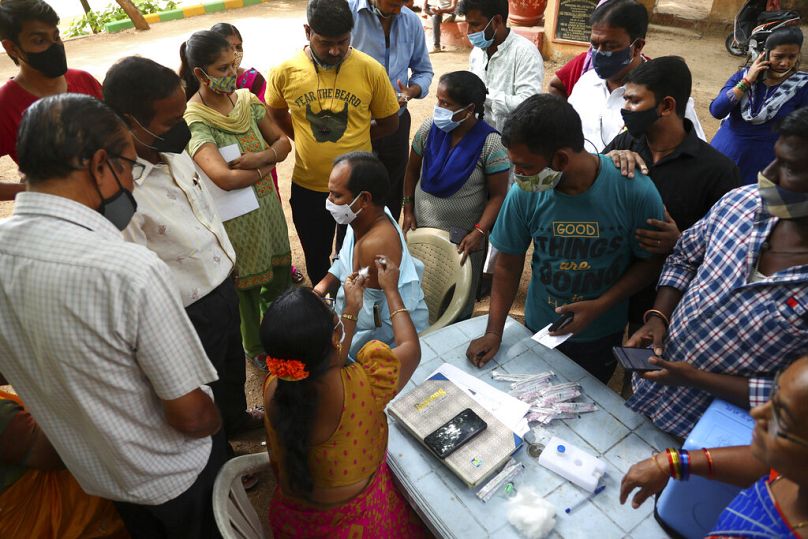A year ago, the G20 nations promised the world equitable access to COVID-19 vaccines. A year later, what do they have to show for it? asks Amnesty International health advisor Tamaryn Nelson
A year ago, COVID-19 forced the leaders of the world’s 20 biggest economies to take their annual G20 summit online. Chaired by Saudi Arabia, the downsized virtual meeting symbolised the disruption caused by the worst pandemic in a century.
The two-day summit was dominated by discussions on tackling the pandemic and ensuring that COVID-19 vaccines, which were then expected to hit the market imminently, would be available around the world.
At the end of their deliberations, G20 leaders issued a final communique announcing that they had mobilised resources to support the research, development, manufacturing and distribution of safe and effective Covid-19 diagnostics, therapeutics and vaccines. “We will spare no effort to ensure their affordable and equitable access for all people,” it said.
G20 leaders also pledged to protect lives. But they offered no concrete plan on how they would do this. Their vows felt like the equivalent of leaders’ “thoughts and prayers” following a mass shooting, when what’s really needed is new policies on gun violence.
Twelve months on, COVID-19 vaccine inequalities are stark
Fast forward a year and we are once again gearing up for another G20 summit, this time in person in Rome, with Italy chairing. But when the G20 leaders finally meet, what will they have to show for the promises made a year ago?
Tragically, not much.
While the average vaccination rate in the G20 countries is around 52 per cent, only 10 per cent of the population in low and lower-middle income countries have been able to get vaccinated.
Perhaps even more concerning is that despite the rollout of vaccines, the COVID-19 death toll has risen from 1.3 million people a year ago to nearly five million today. That’s enough people to fill the Colosseum, that most iconic of Roman landmarks, 100 times over.
The blatant unfairness has only added to the agony and suffering of those in particularly hard-hit countries, where health systems have been brought close to collapse by successive waves of the virus, while governments have not been able to secure enough doses for the populations.
Nepal, for example, reached a breaking point in June after the country ran out of vaccines, leaving 1.4 million high-risk people waiting months for their second shot.
At the time, people desperately in need of care were being turned away from hospitals, while only 2.4 per cent of Nepal’s population had been fully immunised.
Today, five months on, Nepal has received surplus doses from Bhutan, Japan and the United Kingdom – but while Nepal has been able to fully immunise 25 per cent of its population, it is simply not enough.
Rich countries' vaccine stockpiles are going to waste
So, what's behind this catastrophic failure? Quite simply, a level of greed and self-interest that outstrips all reason.
In 2020, many G20 countries pre-ordered and bought the vast majority of COVID-19 vaccines before they had even been approved. Many countries stockpiled enough doses to be able to vaccinate their populations several times over.
In 2021, these countries continue to hoard surplus doses, preferring to sit on them rather than share them with those who need them most. It is estimated that rich countries are holding onto 500 million doses of COVID-19 vaccine right now, which experts say could save more than a million lives.
Equally shocking are reports that the European Union and the G7 countries combined will have a billion more vaccines than they need by the end of 2021 - and that 10 per cent of these are expected to expire by the end of this year, which is fewer than 70 days away.
Unless these are redistributed immediately, they are likely unsalvageable because most countries need at least two months to prepare for an adequate vaccine rollout.
Nearly one-third of these vaccines are held by the United States, which has already discarded up to 15 million doses since March this year alone, according to media reports.
Less than three months left to achieve WHO's goal
On September 22, Amnesty International launched a global campaign to demand that the World Health Organization’s target of ensuring 40 per cent of the populations of low and lower-middle-income countries are vaccinated is met by the end of the year.
The 100 Day Countdown: 2 Billion COVID-19 Vaccines Now! campaign calls on governments with surplus stocks to redistribute these doses to other countries by the end of the year.
We only have 64 days left in 2021 to reach this target.
While some countries have made pledges to redistribute vaccines, similar to during the G20 last year, many still haven’t provided a clear timeframe.
Some have only pledged to do so by next September, nearly a year away from now. The clock is ticking and it’s unconscionable they would wait while tens of thousands are dying every week.
Last year, Saudi Arabia’s King Salman bin Abdulaziz said in his opening remarks at the G20 Summit that G20 leaders had a duty to “give a strong message of hope and reassurance” to the world. This year, my hope is that any “thoughts and prayers” message is followed by real action.
While Europe, the US and a handful of other countries have emerged from lockdown over the past few months, parts of Africa, Asia and Latin America were plunged into renewed crises and we continue to see tens of thousands of preventable deaths a month.
Words of support are nice, but they can’t match a proper game plan for ensuring everyone on the planet gets a shot at a COVID-19 vaccine.
This is especially urgent as the pandemic starts fading into the background for some of the most powerful economies, leaving the rest of the world behind to bear the brunt of it.
Tamaryn Nelson is Amnesty International’s health advisor.
